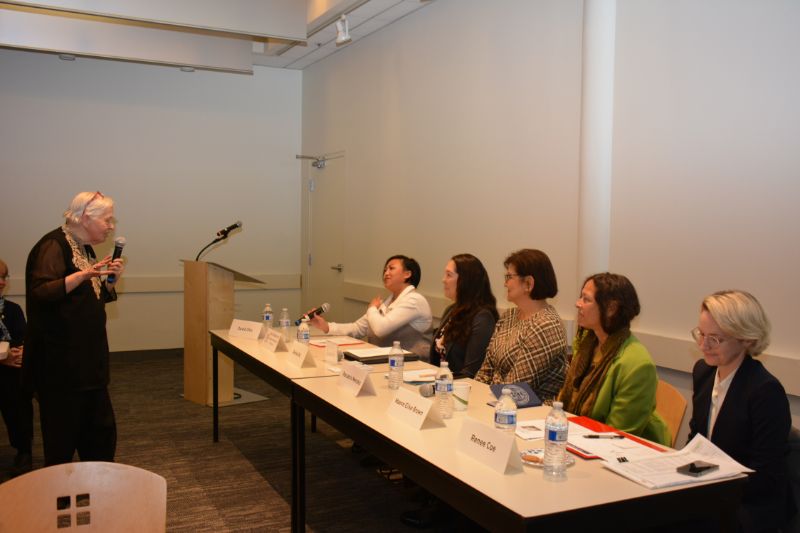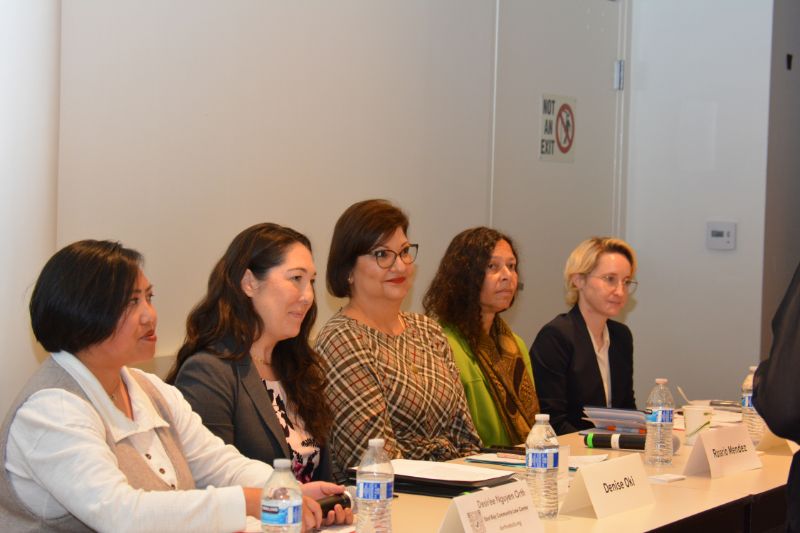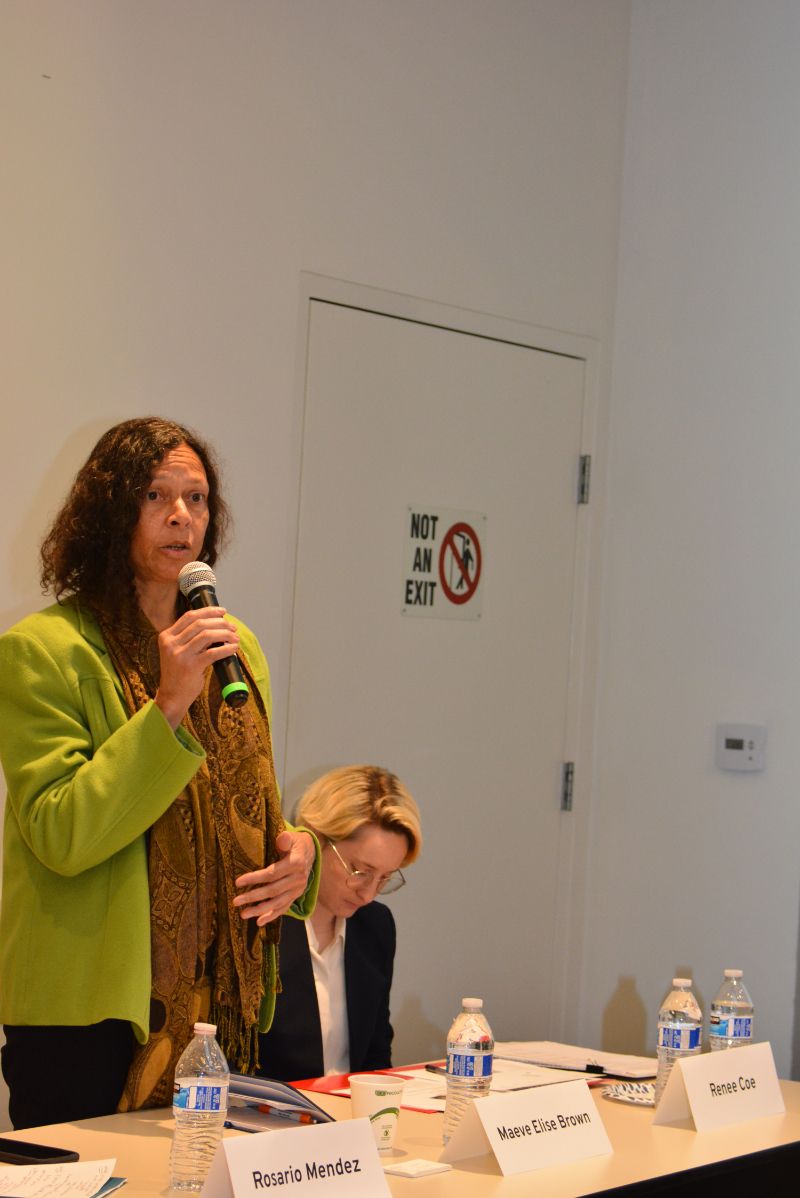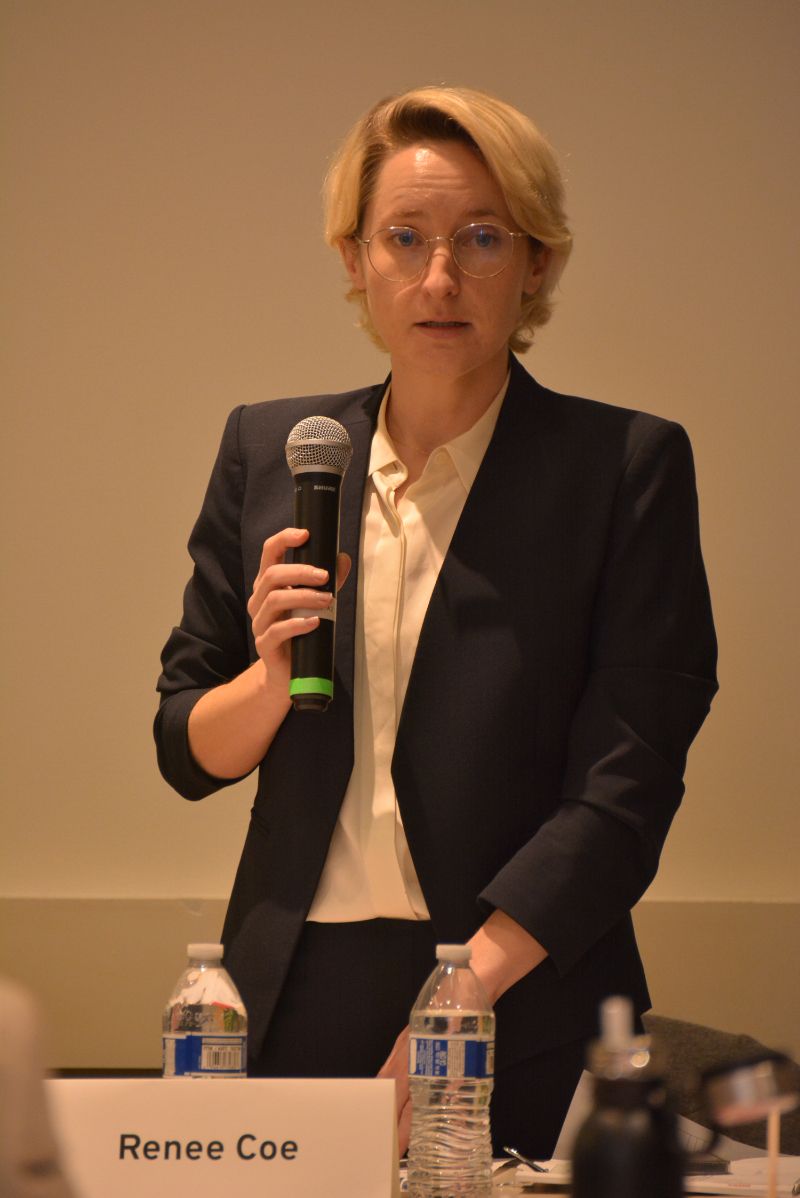Get Smart, Not Scammed!
With scammers getting intelligent and more data available, we are witnessing a significant uptick in scams. Scams impact everyone – AAPI communities, immigrants, English learners, senior citizens, and even international students. Besides the financial impact, victims’ physical and mental health takes a toll. In a conversation hosted by Ethnic Media Services and Federal Trade Commission, experts shared the importance of being informed to spot, avoid and report fraud. Community leaders and victims also shared their personal experiences with scams, highlighting some unique tactics used by scammers in recent times.

“Scammers are everywhere… they’re not just on the phone anymore. They’re in the mail, they’re in advertising, they’re online.” Rosario Mendez, Attorney at the Division of Consumer and Business Education Bureau of Consumer Protection – Federal Trade Commission, highlights the sheer volume of scams witnessed in United States. Strong precedent to the eye-widening conversation of scams targeting the AAPI community. One thing was clear: these scammers are getting smarter. Even the well-informed and well-educated fail to decipher what really is a scam. Sounds fun right?

Desiree Nguyen Orth, East Bay Community Law Center Director of Consumer Justice Clinic, shares insights on how investment scams target mainstream individuals and small businesses. Often overlooked, small business owners are often victims of scams and unforgiving debt.
Desiree Nguyen Orth said, “The reality is that scams happen every day and it doesn’t look like a scam because we don’t feel like victims. Okay. It’s being taken advantage of. It’s being tricked into doing something that you did not want to do. That’s what a scam is.” Nguyen also highlights, “Now one of the biggest issues that we see with people who have been defrauded is that fear of feeling like they’re stupid or they’re dumb. They should have noticed… Those are internal you know blocks that are never going to go away many times.
Orth then demystifies various types of scams and debts that many fall into. “One of the biggest things that we’ve seen in 2023 is people trying to invest in their future, trying to find some way to put their money into a nest egg where they can have some sort of security… people invest their entire retirement along with other people’s retirements into investors’ funds upwards of a hundred thousand dollars only to lose that.” Orth says many of these involve cryptocurrency or investment opportunities that look good on paper but work against the person investing. The scary part, none of this is illegal. “People invest into companies that have false promises and none of this is illegal…they’re just legal enough to make it sound enticing and then you invest and then you lose your money and unfortunately there’s nothing we can do about that.”

On the note of small businesses, Orth said, “Businesses do not have the same consumer protection rights as individual consumers do, but small business owners make decisions the same way that they would if they were a consumer themselves. If you’re a small business and you take out a loan for example for your business many businesses are required to sign personally to guarantee that loan for their business. That means that they can be collected upon for their business debt but not enjoy necessarily the protections that you would have as a consumer. You can be harassed, you can be called names, you can be called multiple times…” Emily Burton, from the FTC, does point out that the state may lack jurisdiction but the FTC will protect small businesses as consumers.
Orth looks at the issue of financial scams from a macro lens. “Let’s talk about the issues that people are facing to meet their daily needs right. Just simply not having enough money is a big big problem and what we’re seeing is this niche being filled in the financial sector because there’s a demand for more money in short-term.”
“We’re seeing debt settlement companies come up that take advantage of marketplace confusion.” Orth sums up the problem of debt settlement companies: “it just doesn’t make that connection with the consumer so many times you’re paying money to a company to try to settle debts that you cannot afford to pay and that doesn’t really make sense.”
Building on the idea of Americans living off of debt, Maeve Elise Brown, Executive Director of Housing and Economic Rights Advocates (HERA), starts by saying, “This is the universe that we all live in, credit as a decider of what it is that we get access to as human beings.”

Brown says that there are state and federal laws in place to protect you from debts and scams. Brown suggests to “slow the process down.” Especially when it comes to signing papers and agreements. DocuSign is one tool leading elderly AAPI homeowners to equity loss or bad debt.
Brown then shares an anecdote about a well-educated Asian man entangled in a cryptocurrency scam. The goal was to outsmart everyone and the government by investing hundreds of thousands of dollars in cryptocurrency. The whole thing was a scam.
Another type of scam that we have taken for granted is immigration scam. We are all aware of the scam where someone from ‘I.C.E.’ calls and demands money or threatens deportation. Renee Coe, a third-year law student at UC Berkeley joining Bay Area Legal Aid, narrates a scary story where the lines between what is a scam and what is real got blurred for a college student from India. “…in the United States for about a year when she was a victim of an ICE imposter scam. So somebody called her on the phone they said they were calling from Immigration and Customs Enforcement and that her name had been connected to a crime, and if she didn’t pay them a bond of eighteen thousand dollars immediately, she would be detained and deported.” Here is the surprising part: “The caller ID was the actual number for ICE.” The second call was from local law enforcement with a caller ID matching the SFPD. With these two convincing calls and a sense of urgency, the student paid the scammers using gift cards and Zelle. The silver lining is that as consumers we should be covered by these scams as long as we report to banks within ten days, according to Renee Coe. However, banks tend to ignore these requests and the victim ends up helpless. We hope that changes.

Loan Thi Le, an international student at Laney College, describes her experience with scams where someone posing as Bank of America called her saying that her account was locked out and her identity needed to be verified. Following the prompts and pressing option 1 to confirm her identity repeatedly, Loan couldn’t get a hold of someone and ended the call. Upon calling her Bank, she found out that someone made unauthorized transactions and changed the SSN leading to the account being locked. Luckily Loan didn’t lose any money.
Brown advises scam victims to open up and speak up about their experience. “We make a choice. We feel hideous about it. We’re terrified. We feel like fools. We don’t want to tell anybody and then we make another horrible choice. We don’t know it’s a horrible choice …Do not be afraid to make a fool of yourself. Nobody thinks you’re a fool or if you’re a fool let’s be fools together. Who hasn’t made a hideous horrible financial decision at some point in our life? Who hasn’t gotten a bill that we were horrified about and we didn’t want to tell anybody.”


